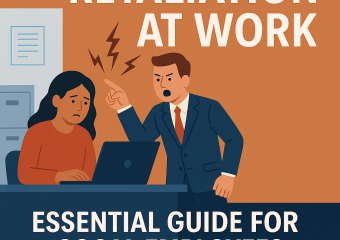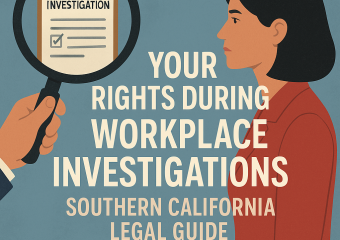Ventura County Workers’ Rights: Sick Leave, Breaks, and Overtime Explained
Ventura County Workers’ Rights: Understanding Your Employment Entitlements
Sick Leave in Ventura County: Know Your Rights
In Ventura County, the landscape of workers’ rights is being shaped by both state and local regulations that aim to support the well-being of its workforce. When it comes to sick leave, employees have specific entitlements that are crucial for maintaining both their health and their rights within the workplace. According to California law, which applies to all employees working in Ventura County, workers are entitled to accrue sick leave at the rate of one hour for every 30 hours worked. Employees, including part-time and temporary workers, can begin to use accrued sick leave after 90 days of employment.
The law stipulates that an employee can use sick leave for the diagnosis, care, or treatment of an existing health condition or for preventive care for themselves or a family member. Furthermore, victims of domestic violence, sexual assault, or stalking can also use sick days for related reasons, such as legal proceedings or safety planning. Understanding these regulations ensures that workers can take the time they need without fear of repercussions, fostering a healthier and more productive workplace environment.
Break Time Regulations in Ventura County
Break times are another fundamental right that significantly impacts employee well-being and efficacy at work. California labor laws, which are enforced in Ventura County, provide clear guidelines on rest and meal breaks. Employees are entitled to a 10-minute paid rest break if they work at least 3.5 hours in a day. For every four hours worked, or a major fraction thereof, an additional rest break is mandated.
Meal breaks, on the other hand, are a bit more structured. Workers who are employed for more than five hours in a day are entitled to a 30-minute meal break. If an employee works over 10 hours in a day, they are eligible for a second meal break, also of 30 minutes. These meal breaks are unpaid unless the employee is required to remain on-call during their break, in which case the break must be compensated. Adherence to these regulations is essential for preventing worker fatigue and sustaining high levels of productivity and job satisfaction.
Overtime Rules and How They Operate
Overtime pay is a critical issue in workers’ rights, providing extra compensation for employees who dedicate additional hours to their jobs beyond the regular working schedule. In Ventura County, as in all of California, the overtime regulations are straightforward: employees earn overtime at a rate of 1.5 times their regular pay for all hours worked beyond eight hours up to and including 12 hours in any workday, and for the first eight hours worked on the seventh consecutive day of work in a week.
Furthermore, double the regular rate of pay is required for hours worked beyond 12 in any given workday, and for all hours worked beyond eight on the seventh consecutive day of work in a week. These rules are designed to fairly compensate workers for extended work periods, which can be physically and mentally taxing.
Navigating Workers’ Rights in Ventura County
Understanding your rights as a worker in Ventura County is the first step in ensuring they are respected and upheld. Employees should maintain open lines of communication with their employers regarding these rights and advocate for themselves if they feel their rights are being violated. For situations where an agreement cannot be reached, several resources are available for guidance and assistance. California’s Department of Labor Standards Enforcement (DLSE) or a qualified attorney specializing in labor law can offer support and direction.
The balance between maintaining productive work environments and ensuring fair treatment of workers in Ventura County hinges significantly on the knowledge and assertiveness of its workforce. By comprehending and utilizing the laws pertaining to sick leave, break times, and overtime regulations, Ventura County’s workers can better safeguard their interests and enhance their working conditions, contributing positively to the county’s overall economic health.




